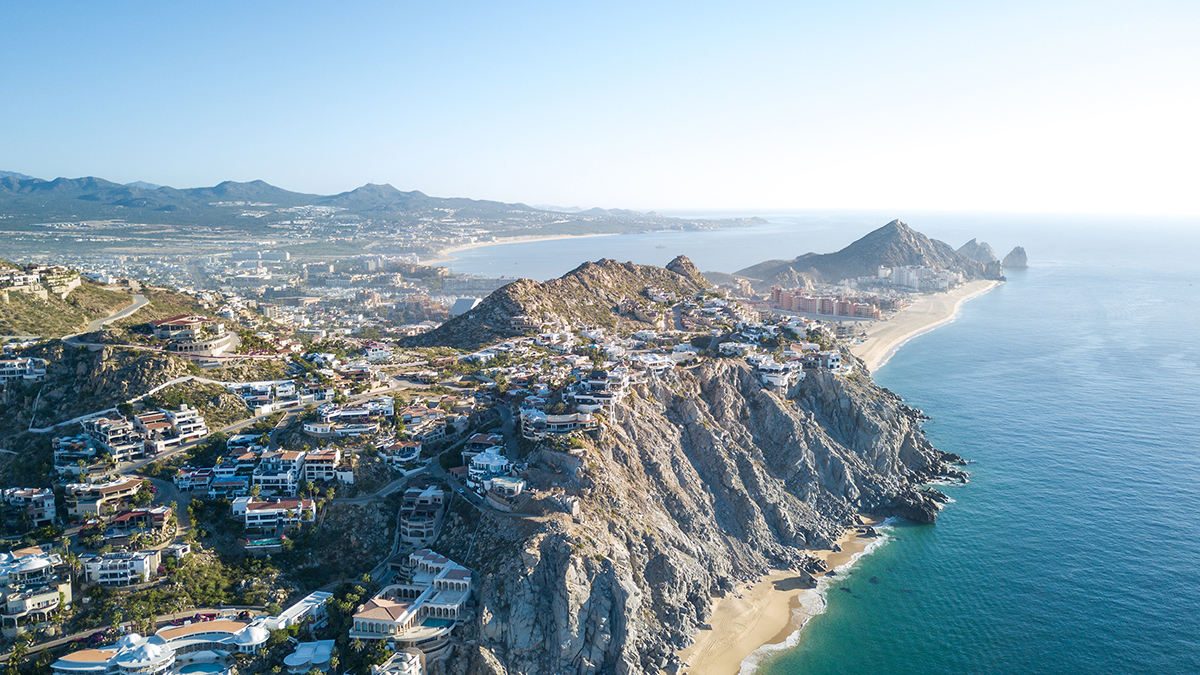 Photo by John Cafazza on Unsplash
Photo by John Cafazza on UnsplashIS IT SAFE TO TRAVEL TO CABO SAN LUCAS IN 2025?
With Mexican travel safety always a popular topic, more American travelers are looking at Cabo San Lucas - a resort city on the southern tip of Mexico’s Baja California peninsula - and asking whether it’s safe to travel there.
Like so many other places south of the border, this popular resort (2.13 million U.S. visitors in 2022, per the Los Cabos Tourism Observatory) can be an extremely safe destination for anyone looking for a sun-and-fun getaway – if you’re prudent and exercise some common sense.
SAFE TRAVEL IN MEXICO
Crime is still a concern in Cabo and elsewhere in Mexico.
The State Department notes that “violent crime ... is common and widespread in Mexico,” though there are no travel restrictions for Cabo San Lucas.
However, the State Department recommends that travelers reconsider travel to Baja California because of crime and kidnapping. On the flip side, Mexican tourism experts are confident that the country is safe for vacationers and travelers.
They stress that regardless of what you may have read in the headlines, incidents in Mexico involving tourists are extremely few and far-between.
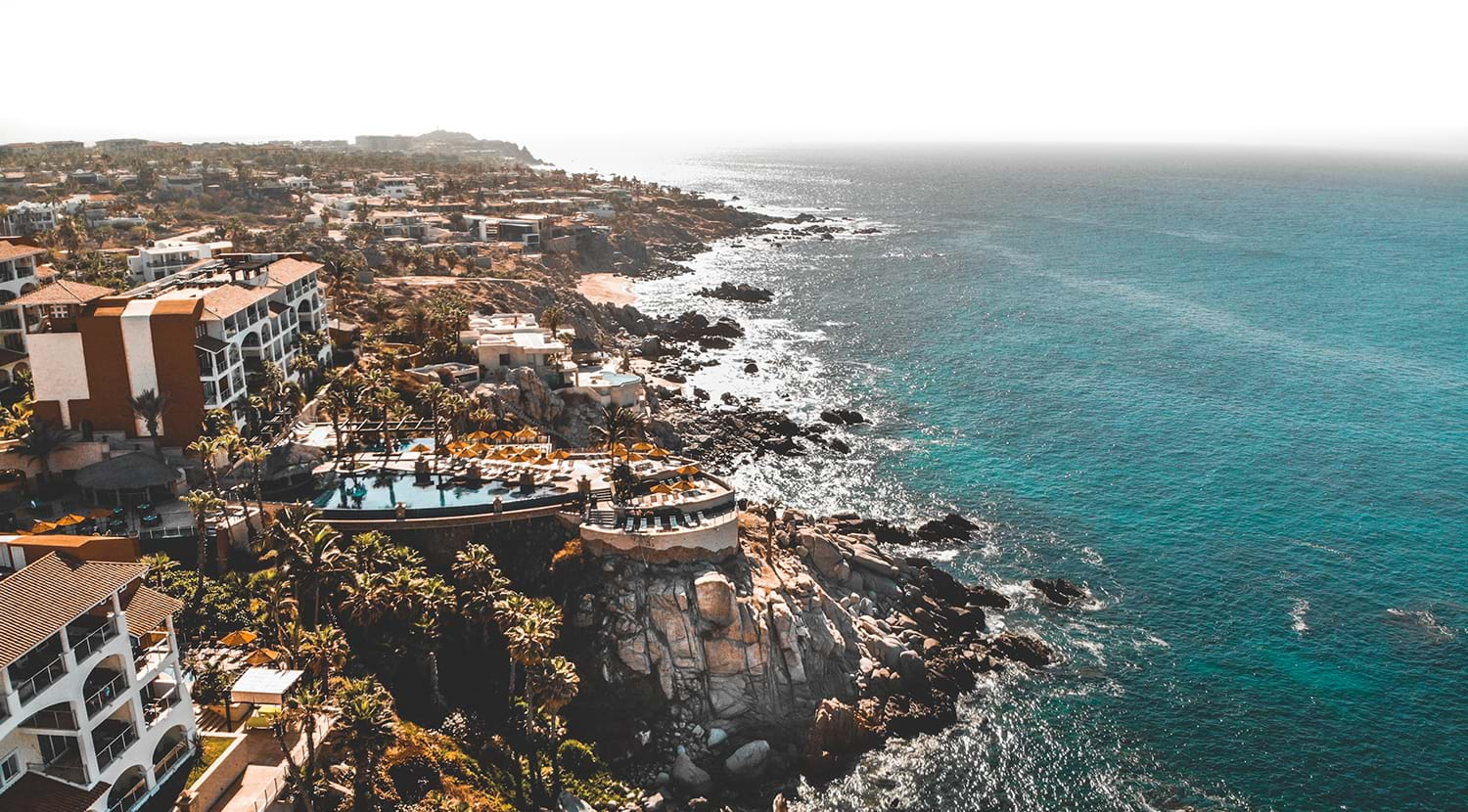 Photo by Victor Hughes on Unsplash
Photo by Victor Hughes on Unsplash
“There has been a little misinformation [regarding travel safety in Mexico],” said Ana Sofia Lanczyner, a former official with the Mexico Tourism Board.
“Stuff can happen in tourist destinations in Mexico,” adds Rich Biswell, marketing director for Journey Mexico, a Mexico-based tour operator specializing in experiential trips and tours, “but when it does, tourists generally aren’t involved.”
Specifically regarding Cabo San Lucas and its state of Baja California Sur, the State Department notes that “criminal activity and violence may occur throughout the state,” but adds that “there are no restrictions on travel.”
Just to be on the safe side, do your touristy wandering during the day, watch out for pickpockets and scams, and choose your transportation carefully. Use an app like bSafe to let others know where you are.
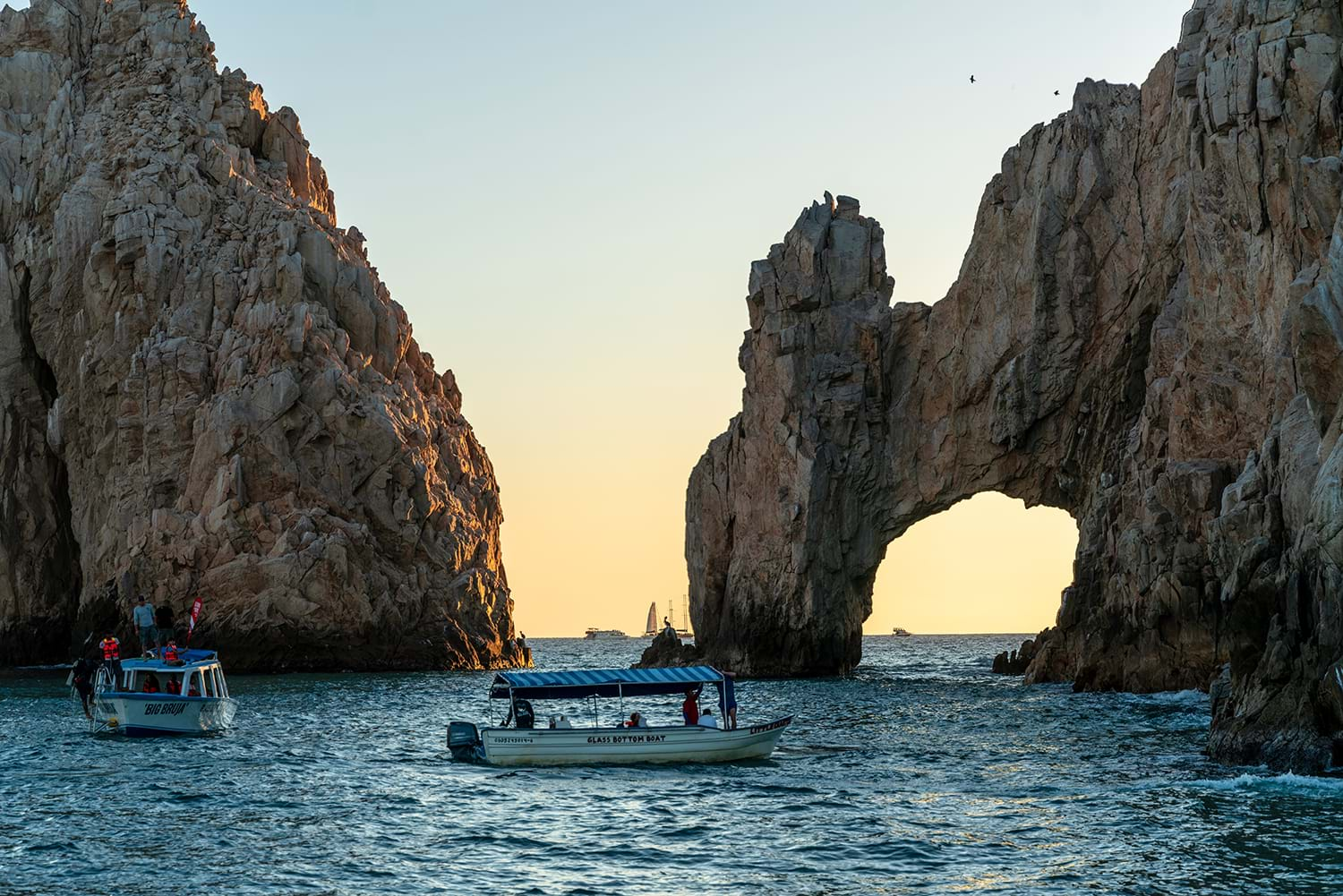 Photo by Lux Productions on Unsplash
Photo by Lux Productions on Unsplash
SPECIFIC SAFETY TIPS FOR CABO
Here are some other great tips to improve your chances of a safe vacation in Cabo:
Ask someone who knows the area
Know – or ask – about the safe parts of the area, the safest ways of getting around, and which clubs are okay.
“Have someone you can trust – whether it’s a concierge at the hotel or a guide from Journey Mexico or another reputable operator – give you that advice,” Biswell said. “They’re not going to send you someplace bad.”
Don’t walk alone at night
Use common sense when wandering on your own hook. If a neighborhood looks dangerous, it may well be. The GeoSure app provides neighborhood-by-neighborhood ratings for Cabo, but conditions change.
Be especially careful when visiting bars, nightclubs, and casinos.
Leave the bling home
Flashy jewelry attracts the wrong kind of attention.
 Photo by Valeriia Bugaiova on Unsplash
Photo by Valeriia Bugaiova on Unsplash
Don’t take chances with valuables in your hotel room
Hide your valuables and lock your doors. Don’t always trust the hotel safe; instead, put valuables in a portable, packable safe like the ones made by Pacsafe.
Trust your instincts
Never take your eyes off your personal belongings – especially at public areas like one of Cabo’s beaches, where people tend to let their guard down.
If a situation or place makes you nervous, exit stage right by the safest means possible.
Be careful around ATMs
Be aware of the people and circumstances around you when you use an ATM.
Muggings can happen around ATMs; if you’re a victim of mugging or theft at an ATM, don’t resist; give up the money and live to fight another day.
Be on guard for pickpockets
Pickpockets like to victimize tourists in Cabo. To keep valuables safe:
- Be extra-careful on public transport – or don’t take public transport
- Split up your money and valuables
- Minimize your cash on hand
- Keep copies of important documents in a safe place at your hotel
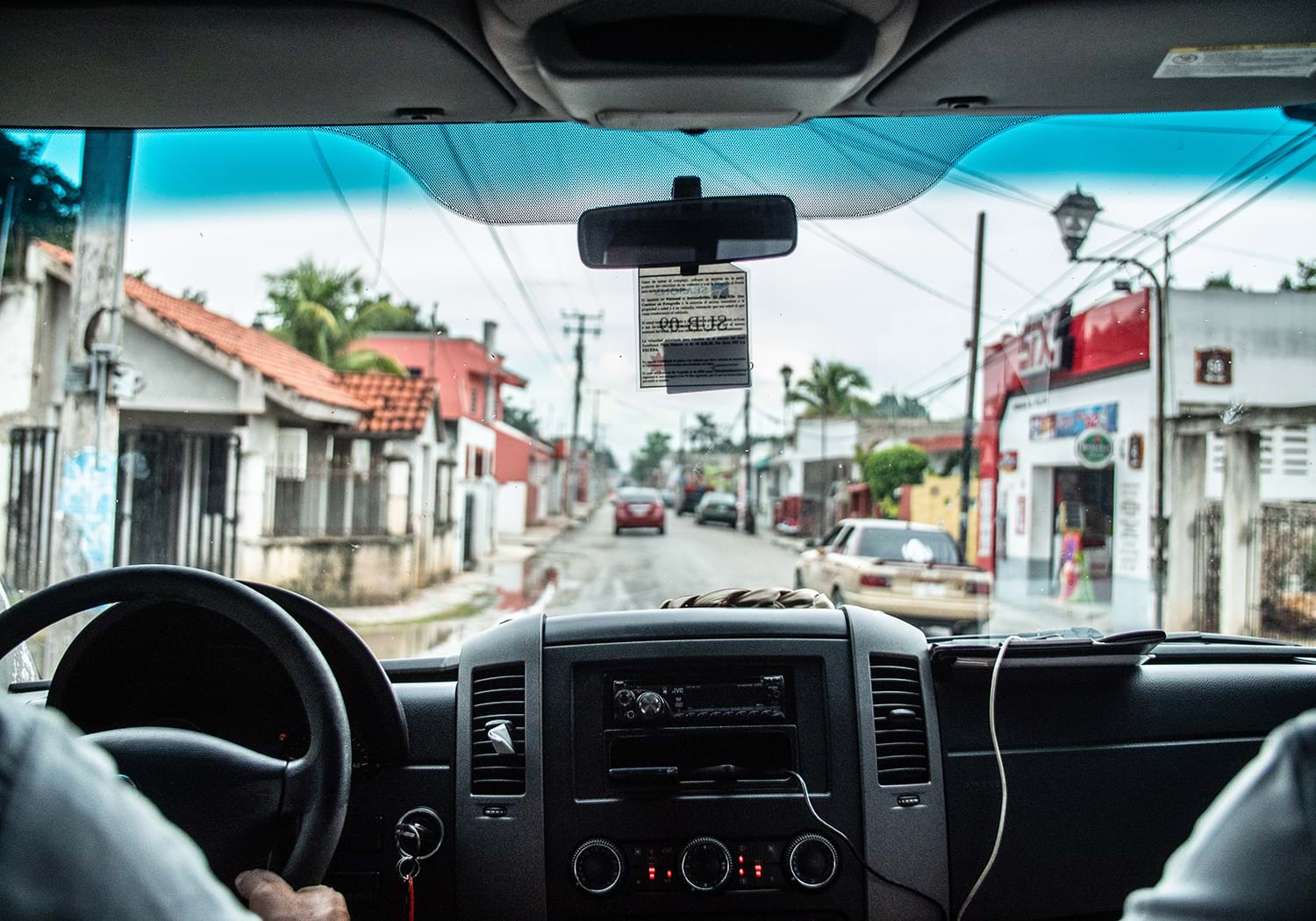 Photo by Maxwell Ridgeway on Unsplash
Photo by Maxwell Ridgeway on Unsplash
Use transportation that you know is safe
When out and about:
- Use your hotel’s transportation or Uber. If you use Uber:
- Confirm the vehicle and license plate
- Sit in the back seat
- Don’t hail a cab off the street in Cabo
- If you do use a taxi, negotiate the fee in advance
- Avoid driving in Cabo. If you must drive:
- Drive during the day
- Stick to well-traveled roads in the city and toll roads in the country
- Keep your gas tank full
Lenczyner also recommends that you “make sure you have a map – and make sure you’ll have cell service throughout [your trip].”
Be beach- and water-smart
The ocean around Cabo is alluring, but riptides are common, jellyfish are plentiful, and lifeguards are scarce.
To stay safe around the water in Cabo:
- Heed all posted signs, warnings and flags regarding water status and safety.
- Flags follow the red-yellow-green traffic-light pattern, with the addition of a black flag to indicate extreme danger.
- Avoid the water during a storm.
- Your best bet is to do your swimming at the hotel pool, wade in the ocean, and stick to the open, popular beaches on the Baja Peninsula’s east side.
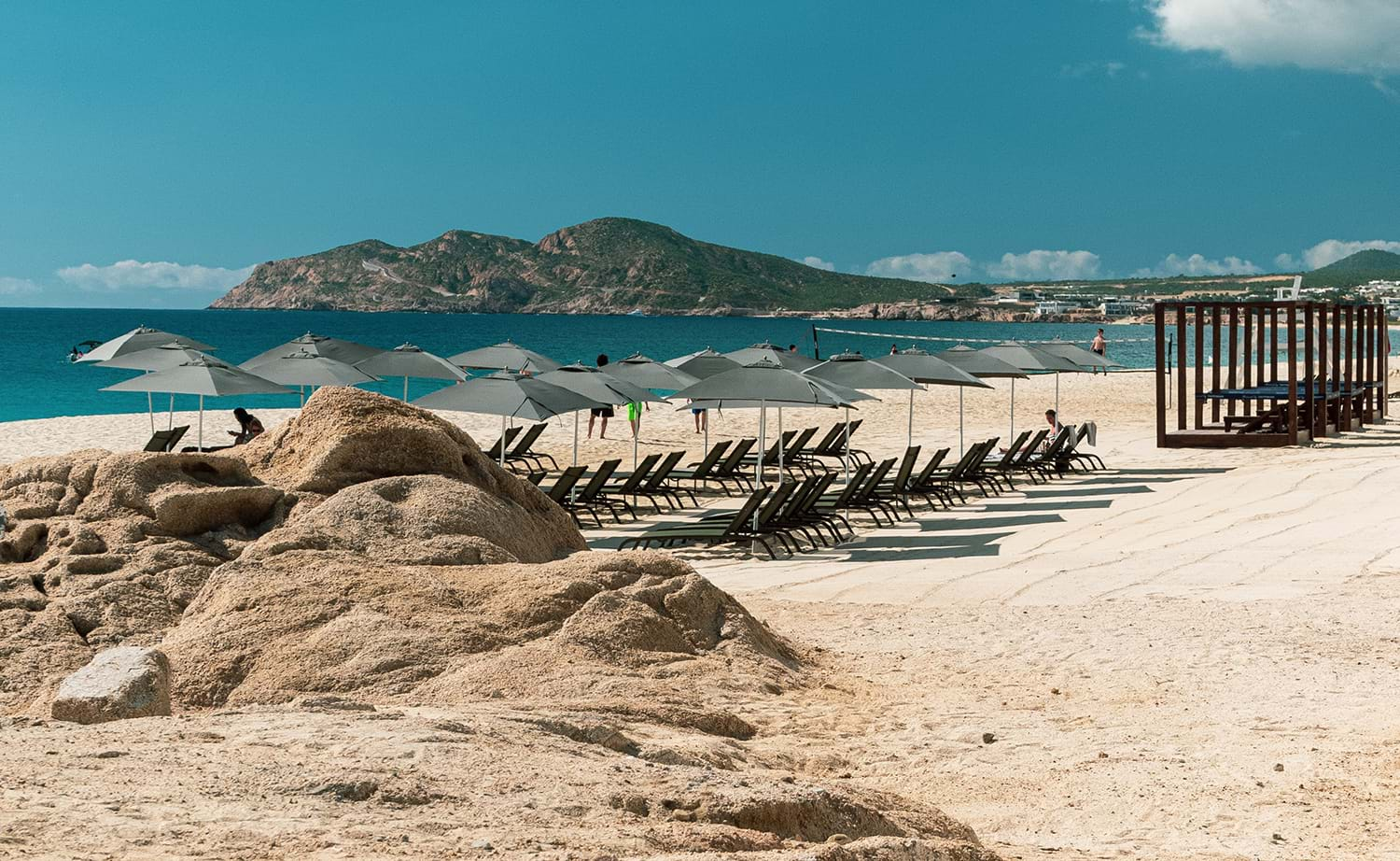 Photo by Rohan Gangopadhyay on Unsplash
Photo by Rohan Gangopadhyay on Unsplash
Don’t drink the water
- Don’t drink tap water; instead, drink bottled water and agua purificada – purified water.
- Request all your drinks be made without ice and watch your drink at all times. Drink spiking is not unknown.
Practice good hygiene
Diseases of many types are common in Cabo, but they can be prevented by following good hygiene practices like washing your hands frequently.
Watch out for natural hazards – insects, snakes, and scorpions
If you’re not a fan of the creepy-crawlies, Cabo gives you something to think about. Here’s what we mean:
Bark scorpions are plentiful, and their sting can be extremely painful. They tend to be active in summer and at night, so …
- Shake out your shoes before putting them on
- Shut your bags tightly so scorpions can’t crawl in
- Leave them alone as much as possible – live and let live
Rattlesnakes (18 different varieties) can be found inland. The poisonous yellow-bellied sea snake lives in the water and packs a powerful bite. This reptile is a particular danger, as the necessary antivenom may not be readily available.
Mosquitoes that carry Zika are a concern, as are poisonous spiders like the brown recluse.
- Know your bite allergies before you leave and bring insect repellent with a high concentration of DEET.
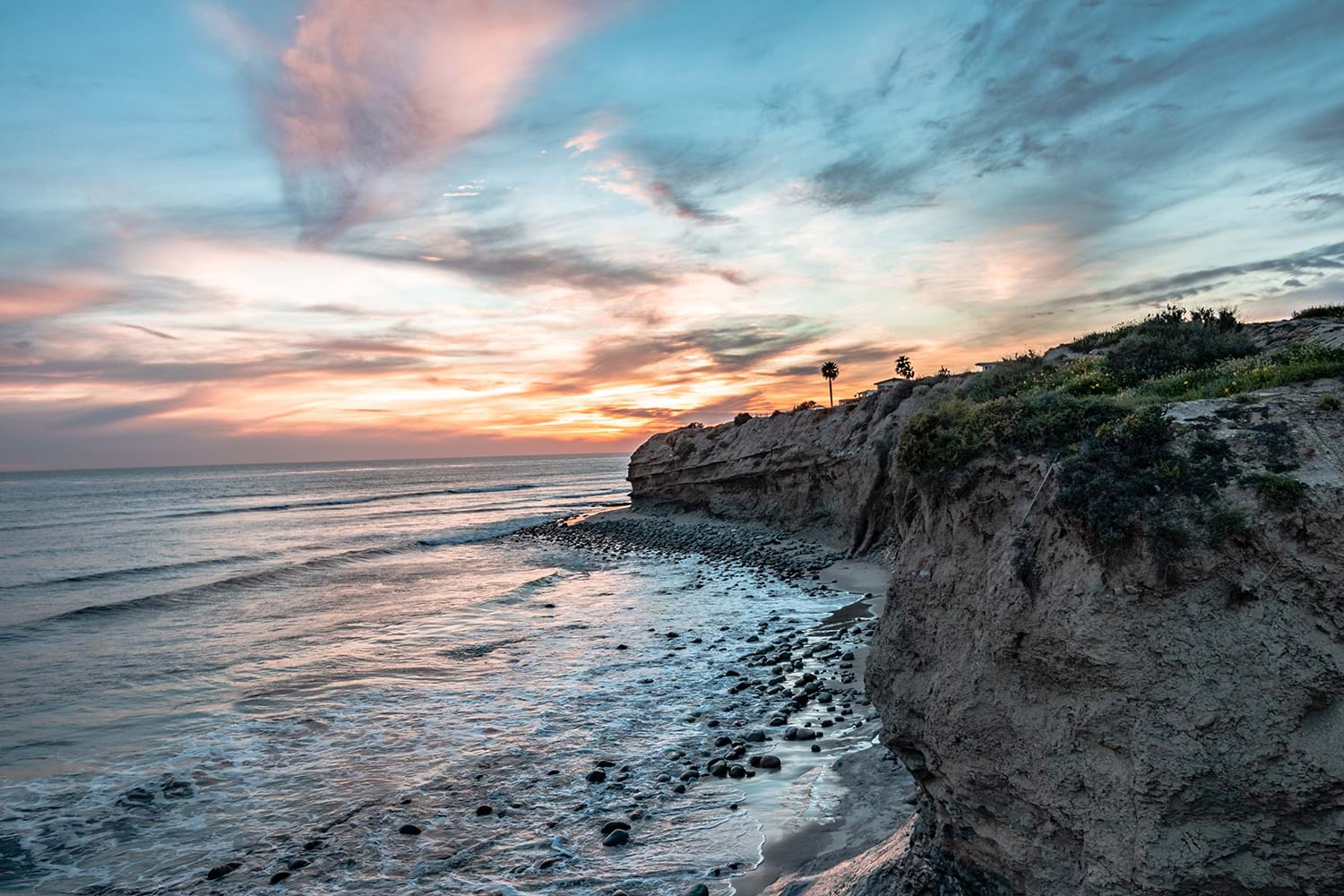 Photo by Erick Palacio on Unsplash
Photo by Erick Palacio on Unsplash
Watch the weather
Generally, weather on the Mexican coasts is ideal – sunny and warm, with gentle breezes custom-made for lazing by the beach. The only time to worry is hurricane season, which in Cabo runs from July through September.
Baja California Sur is generally immune from hurricanes but keep an eye on the weather if you plan to travel to Cabo in the summer. Check the long-term forecast, but don’t obsess over it.
As Biswell said, “Hurricanes are so hit-and-miss, you shouldn’t not travel to Mexico and block out those months.”
And here’s a bonus: Mexico can be cheaper during these times.
Watch out for natural disasters – earthquakes and volcanoes
Earthquakes and volcanic eruptions are also a fact of life in Baja California, though they’re even less common than hurricanes.
Earthquakes strike without warning. If you find yourself in an earthquake, head for open spaces, away from potential building collapses.
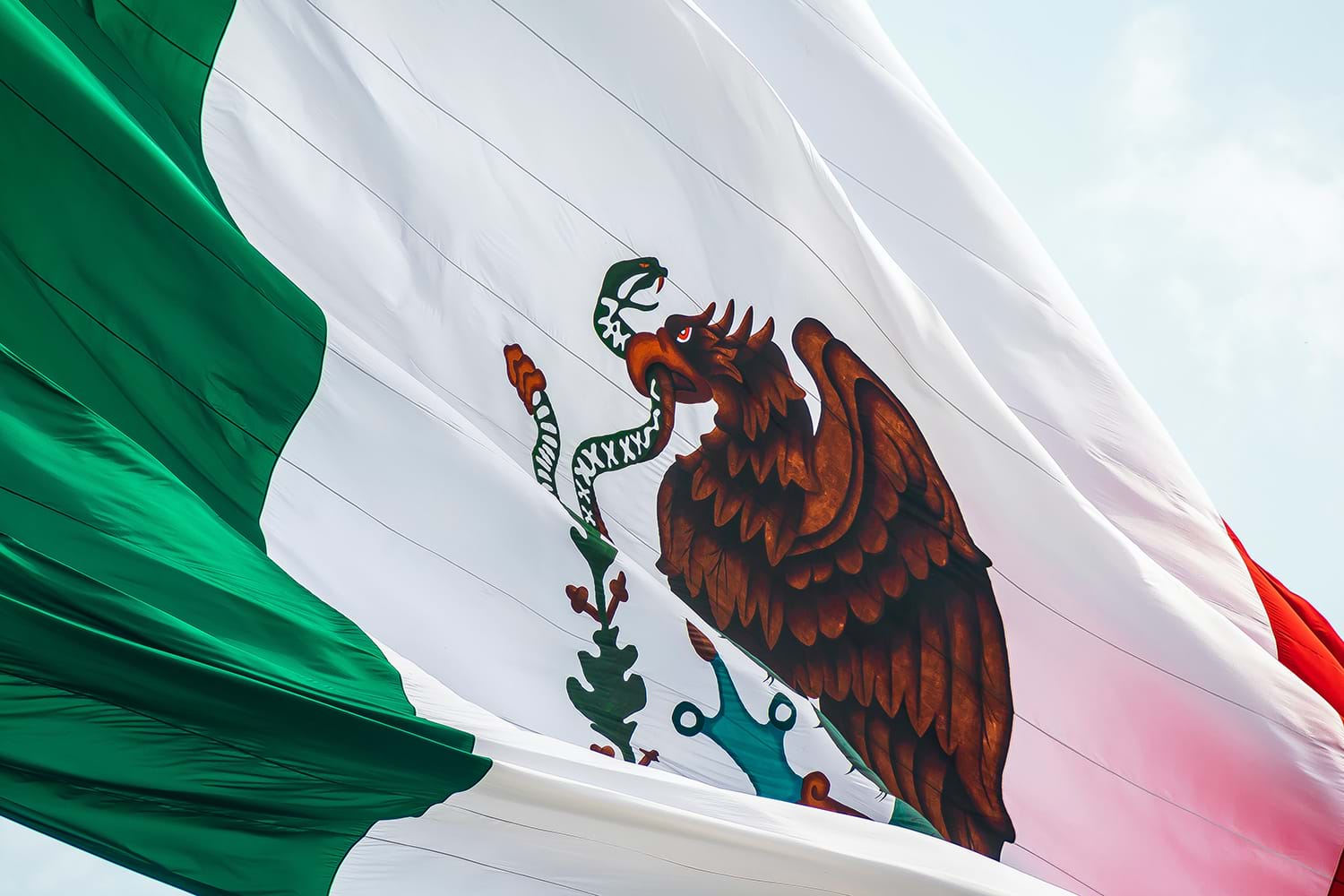 Photo by Jorge Aguilar on Unsplash
Photo by Jorge Aguilar on Unsplash
Know how Mexico’s medical system works
If you get sick or injured while on a Mexican vacation:
- Make sure your provider is on the State Department’s list of providers and hospitals.
- Bring payment. Most Mexican hospitals don’t accept U.S. domestic health insurance or Medicare/Medicaid and require payment upfront by cash, credit card, debit card, or bank transfer.
- Pack travel health insurance from a company like Berkshire Hathaway Travel Protection, and contact insurance as soon as a situation arises. They’ll work with you and providers to coordinate care and payment.
Don’t play games with your passport
If you’ve applied for a new or renewed passport lately, you know the system’s backed up. A combination of nearly unprecedented demand, staffing shortages, and postal-service slowdowns have resulted in significantly lengthier wait times.
If you’re planning a trip to Cabo and you need a new or renewed passport, get on it now. Tomorrow may be too late.
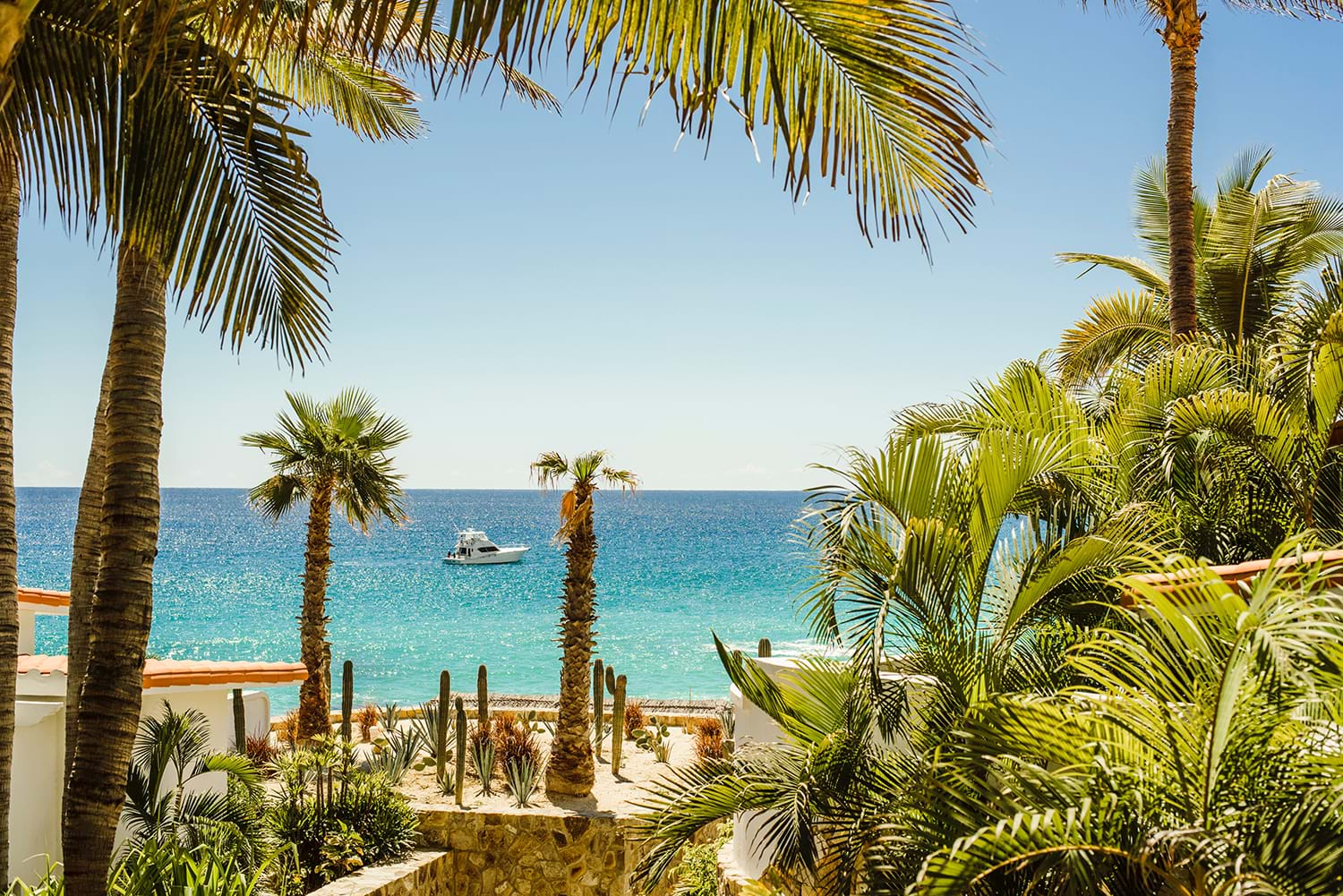 Photo by Marco Samaniego on Unsplash
Photo by Marco Samaniego on Unsplash
Other safety tips from the State Department
Basic tips when traveling to Mexico include:
- Enroll in the Smart Traveler Enrollment Program
- Follow the Department of State on Facebook and Twitter
- Review the Crime and Safety Reports for Mexico
- Have a contingency plan for emergency situations
In addition, the State Department reminds travelers to:
1. Pack lightly and bring appropriate clothing.
2. Be aware of the effects of:
- Different food
- A new climate
- More strenuous physical activity
- Changes in routine and schedule
3. Work with the nearest consulate or embassy if you need help:
- Contacting relatives or friends
- Finding medical care
- Reporting a crime
- Finding accommodations
- Arranging flights home
- Replacing a stolen or lost passport
This may seem like a lot, just to have a nice, safe vacation in Cabo … but most of this is plain old common sense. Take what you’ve learned as a traveler, add some travel insurance from Berkshire Hathaway Travel Protection, and you’re all set for Cabo.
Just one more thing: Pack your laid-back attitude. You’ll need it.
Questions About Travel Insurance?
Check out our online guide, "What Is Travel Insurance All About?" We've provided in-depth answers to all your travel insurance questions, starting with the basics.